Editor’s note: Some people mentioned in the story requested their names be omitted.
University of Kentucky students, members and non-members alike of the on-campus Coalition for Palestine hosted “A Vigil for One Year of Genocide” to honor the lives lost in the Middle East in the past year.
The vigil, held outside of the William T. Young Library, took place on Oct. 7, with over 100 individuals in attendance, as well as 15 UK Police Department officers on site.
“I’m so glad to see that so many of you took some busy time out of your day to be here at this vigil to honor our martyrs,” a UK student who requested to be referred to as S.A. said.
The vigil included a large piece of paper with thousands of hand-drawn poppies on it, posters and signs with phrases and photos of the “martyrs” made by the coalition members, books, backpacks, flowers and small candles.
S.A. started her opening speech by listing off words relevant to the ongoing humanitarian crisis.
“Flower, shopping bag, pink skates, an earring, a graduation gown, a scalpel, the dawn prayer or Fajr, words that seem unrelated, and yet, for those of us who have paid attention in the last year, they are seared in our minds,” S.A. said.
S.A. explained these words’ meanings and how they relate to the people impacted. A photo of 10-year-old Tala Abu Ajwa wearing pink skates circulated the internet after her death. An earring for Reem, whose father keeps her earring on his collar after her death, his video circulating the internet of him wearing the earring.
“I don’t know a word in any language that could encapsulate this level of tragedy and evil. For the first time in history, we are watching a genocide being live streamed onto our phones, we have learned the names of our martyrs, their hopes, their dreams, their resilience,” S.A. said. “Yet, the United States and Israel’s genocide continues.”
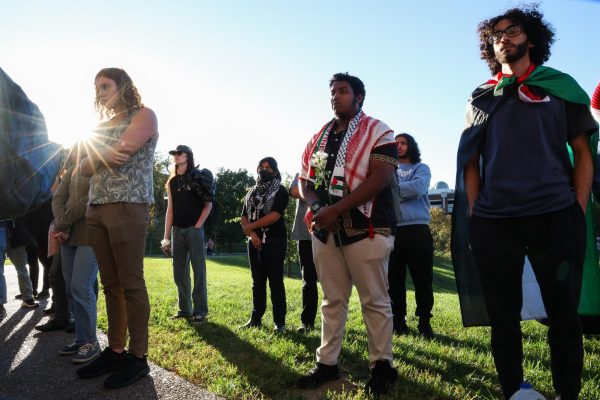
Over the past year, S.A. said that she has learned how difficult it is to choose to speak out against a genocide in which the Western world is complicit.
“Yet, those difficulties pale in comparison to the realities that Palestinians, and now Lebanese, Syrians, Yemenis, now face. The propaganda is everywhere, and it will have you believe that Palestinians, Arabs and Muslims are either terrorists or acceptable casualties,” S.A. said.
According to S.A., Western media has left the masses questioning if Israel was actually targeting hospitals. She said there are no functioning hospitals left in Gaza today.
“You can erase people’s suffering by making them out to be villains, as is the case with the Palestinians, or by making their suffering a given condition of their existence,” S.A. said.
S.A. ended her speech by focusing on what is to come.
“I’ve spoken about the past and the present. But what about the future? A future that 200,000 Palestinians will never see come to light at the end of this vigil,” she said. “We don’t, we can’t stop. We don’t stop at mourning our martyrs here. We can’t stop at mourning our martyrs here.”
The second speaker, Ala Hassan, a recent graduate from UK, opened with the customary greeting of Muslims, “Salam alaikum,” meaning “may peace be upon you all,” according to Hassan.
Hassan said that Marcellus Williams, a man executed by his state, was a symbol to all of them. Williams was referred to as “Khaliifah,” which means “leader” in Arabic. This poem was written for the children in Palestine, according to Hassan.
“The murder of Marcellus Williams by our government was intentional, the government wanting to silence him. His innocence was beyond. There was no doubt about his innocence, and yet he was lynched by the American government system,” Hassan said. “Our liberation is interconnected. Our struggles are interconnected.”
Marcellus Williams was a man who was convicted for the killing of Lisha Gayle, who was “stabbed during the burglary of her suburban St. Louis home,” according to AP News. Williams was executed by the state of Missouri on Sept. 24.
“There was no doubt about his innocence, and yet he was lynched by the American government system. Our liberation is interconnected. Our struggles are interconnected,” Hassan said.
She then read “The Perplexing Smiles of the Children of Palestine,” a poem by Williams.
Hassan read each line in the poem one at a time, with the audience repeating it back as she went.
“Today, yes, is a day of mourning and a day or recognition for what has been happening in Palestine for a year and 76 years before that genocide,” Hassan said. “Yet, our resilience brings us smiles to our faces. Our resilience gives us hope. Our resilience gives us hope and the ability to keep on going to fight for them. So please don’t ever stop fighting until Palestine is free from the river to the sea.”
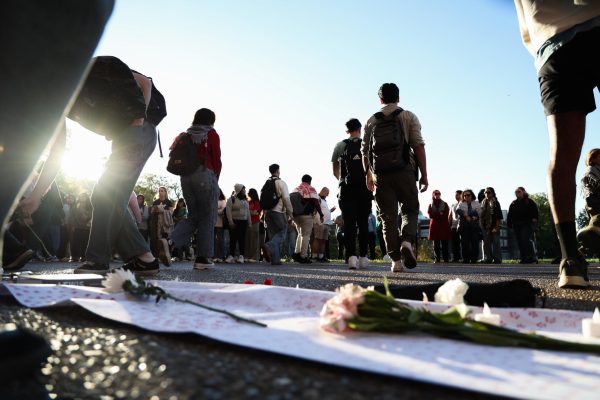
The third speaker, Hannah I., a UK dental school student, shared statistics with the audience.
“For the people who claim that Hamas and Hezbollah are terrorists, but refuse to attach the same words to Israel, let them know that every hour in Gaza, 15 people are killed. 35 are injured. 42 bombs are dropped and 12 buildings are destroyed every hour,” Hannah said.
These statistics are confirmed on the Aljazeera website.
Hannah said that the 12 higher education institutions in Gaza have been damaged or destroyed, and only 13 of 36 hospitals are partially functional.
“I think what the Israeli regime fears the most is truth,” Hannah said.
With the statistics she shared, Hannah said she hoped that those who listened took them and shared them with those who “claim that this started on Oct. 7.”
“The Palestinians are resilient people. We are resilient people, and we don’t fear the Israeli regime, we don’t fear America, we don’t fear the mainstream media and all the lies they try to spread. We only fear God, and God has promised us freedom,” Hannah said at the end of her speech.
UK student Layla A. spoke about how Palestine and Lebanon have shown “resilience” for years during their struggle.
“Through decades of occupation, displacement and oppression, we have had no choice but to endure, to adapt and resist. Our resilience is not simply about survival. It is about holding onto identity, history and the hope for justice,” Layla said.
Layla discussed the importance of poetry and how it becomes the voice for those individuals “silenced by violence.”
Layla’s mother lived under the occupation for the first 18 years of her life and used poetry during those times.
“It [poetry] turns pain into power, loss into love and trauma into testimony,” she said.
Layla read a poem from Palestinian writer Refaat Alareer titled “If I Must Die.”
“His words echo the heart of a community that understands that even in the face of his death, life must be honored,” Layla said.
A moment of silence was taken at the end of Layla’s recitement of the poem and her speech, asking for thoughts and prayers.
“As the struggle continues, we have to remind each other that no matter how dark the days may seem, the fight for justice continues, even as the oppression and corruption embeds our systems. The fight for collective liberation must persevere,” Layla said.
The final speaker and media liaison for the event, Logan, discussed Appalachia and its connection to Palestine.
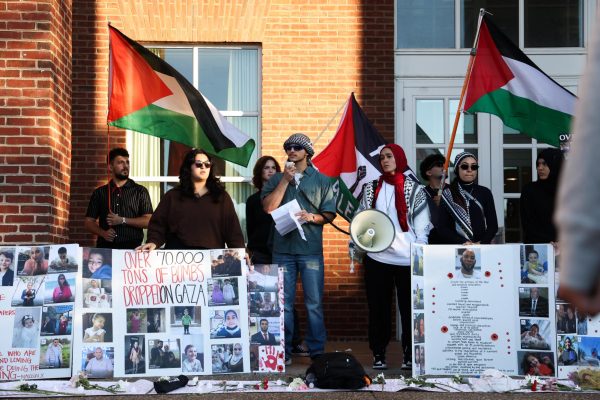
“I’m no ignorant man when it comes to the exploitation of Appalachia. My family was forced to move here to Central Kentucky from Eastern Kentucky, my homeland, after flooding destroyed our home. Flooding in Eastern Kentucky is due to governmental neglect, horrible infrastructure and the destruction of our environment brought by the coal industry,” Logan said.
Family members of Logan’s, including one of his grandfathers, was killed by a coal mine collapse, and his other grandfather became disabled from the chemicals he was exposed to in the mines.
“This government’s exploitation continues in the name of profit for those in power, in the same way, they profit off affordable infrastructure failure in providing safety nets and opportunity to my region, they profit off of their arms trade with Israel,” Logan said.
Logan said that those Americans who run the government allow their own people to suffer and demand that Americans die for Israel’s sake.
“Instead of funding Israel’s slaughter, we could have invested towards public housing as we face one of the biggest housing crises in American history, or perhaps we could have invested it in affordable healthcare while it’s at its costliest, or perhaps public education while it’s at its worst,” Logan said.
The funding Logan discussed was instead sent to aid Israel, according to him. Logan discussed how organizations on campus and in the community attend city hall council meetings twice a month, attend pro-Palestine events, call their representatives and urge for a ceasefire.
He also listed three demands from organizations devoted to Palestinian liberation.
“We collectively demand that the University of Kentucky sever academic ties with Israeli universities and organizations,” Logan said. “We collectively demand that the Lexington Urban City Council bring back the use of audio and visual recordings during public speeches delivered by its constituents. Number three, we collectively demand that the Lexington Urban City Council pass a ceasefire resolution ending Israel’s genocidal campaign of terror.”
The organization ended the vigil urging students to fill out an interest form for the Students for Justice and Palestine student organization, take fliers and sign petitions they had.
“Together, we can collectively leverage our university and city and state into fighting for justice and liberation in Palestine,” Logan said.
































































































































































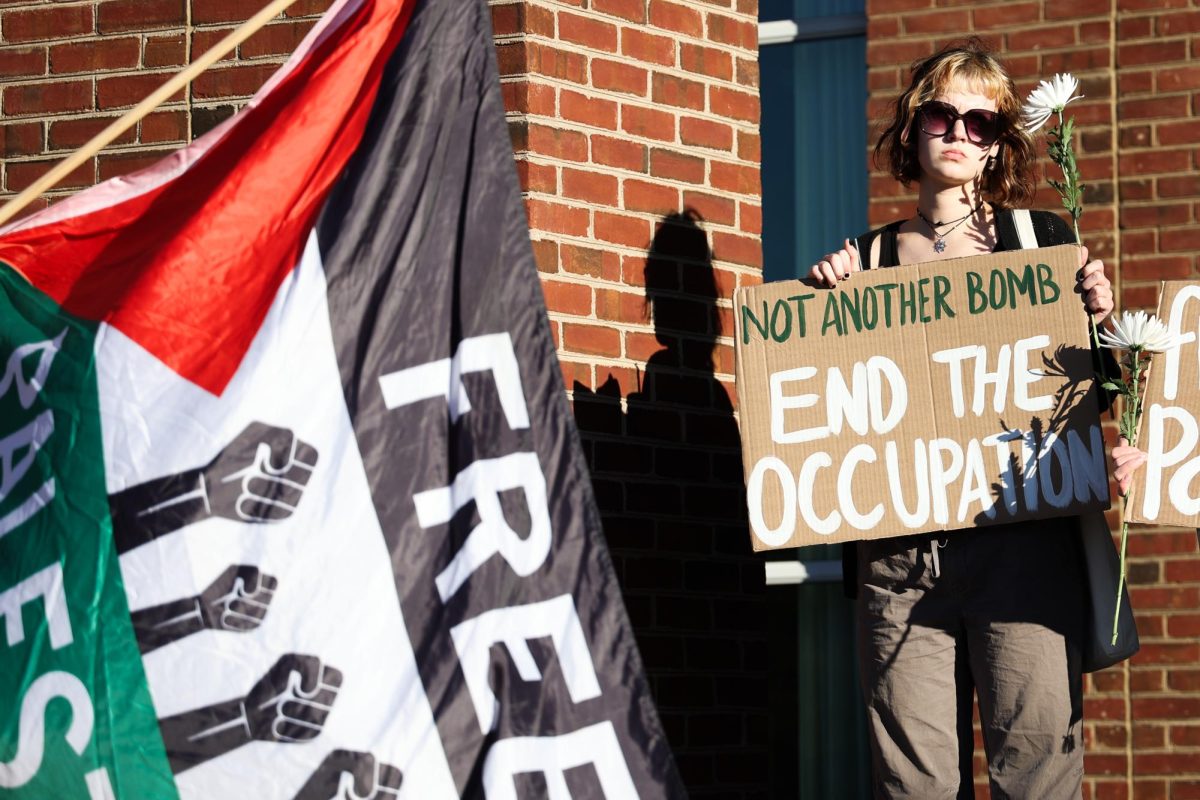
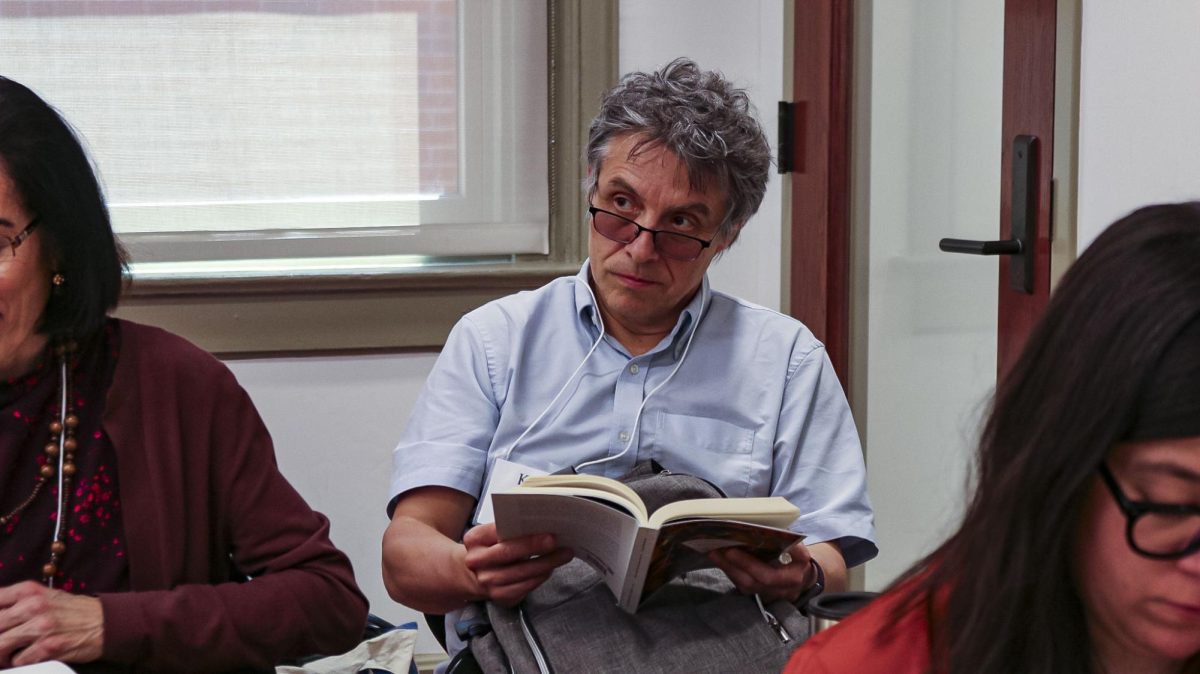
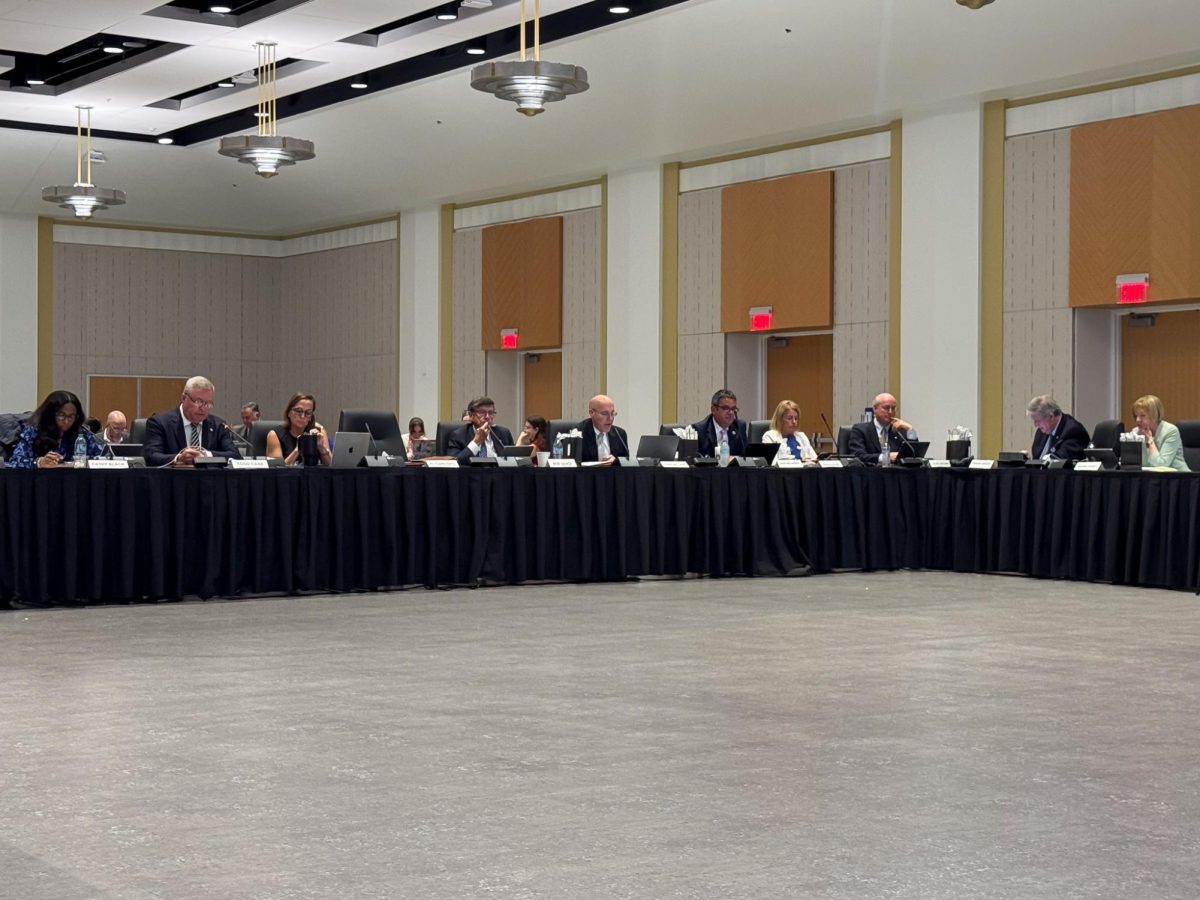
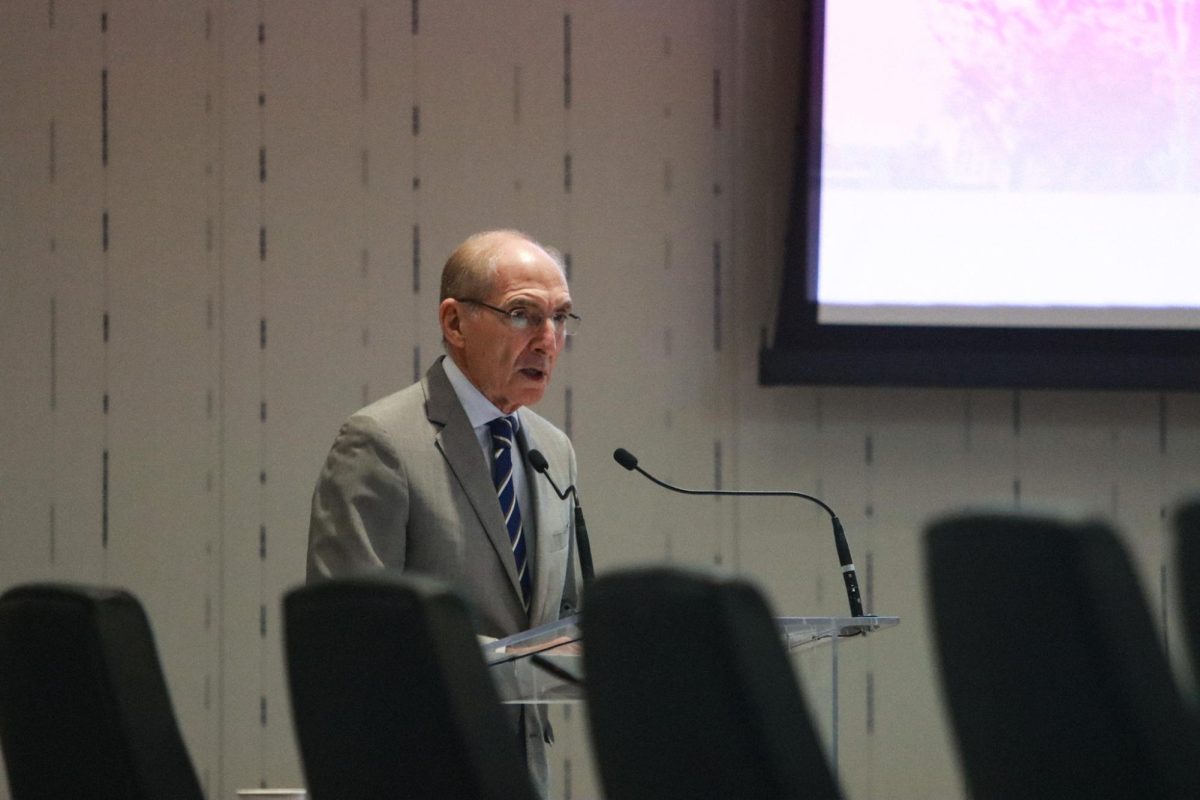
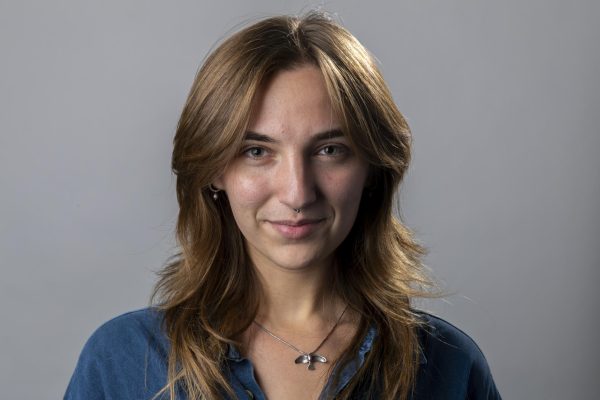
Logan • Oct 9, 2024 at 2:55 pm
Beautifully written article, which encapsulates and accurately represents all that us organizers worked for and ask for. Absolutely the opposite of WKYT’s & especially Fox’s articles.
J • Oct 9, 2024 at 2:45 pm
glad to see so many people showed up! viva viva palestina!